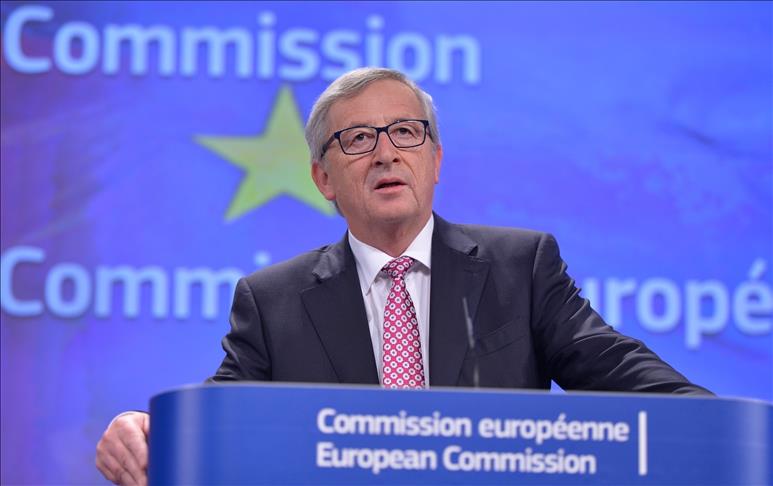German experts skeptical of EU army proposal
Leading security experts say proposal for creating an EU army is not realistic, cannot be an answer to Russian behavior in Ukraine

By Ayhan Simsek
BERLIN
European Commission President Jean Claude Juncker’s call for the creation of an EU army has received support from the German government, but prominent security experts in the country expressed strong doubts about the viability of the proposal.
Josef Janning, senior policy fellow at the European Council on Foreign Relations, said the EU army has been an old dream in the European integration debate, but it remains an unrealistic project.
"It is plausible, it may even be desirable, but it is not doable," Janning told The Anadolu Agency.
He underlined that Juncker’s proposal was not backed by any concrete or detailed plan.
"It did not come up now because Juncker issued a report or a major statement but it came up in an interview. It was more circumstantial than a long-term plan," he said.
Juncker used an interview with German weekly Welt am Sonntag on Sunday to call for the creation of an EU army to strengthen the EU’s role in international crises.
Germany immediately expressed support for the proposal, but the U.K. renewed its opposition to military unity.
Divisions among EU members
Dr. Christian Moelling, security expert at the German Institute for International and Security Affairs, underlined that the EU army still lacked a clear definition or a comprehensive plan, and criticized the immediate reaction by member states.
"Countries are building up kind of straw puppets on what the European army is and then they basically try to tear it down," Moelling said.
He argued that the idea of a European army was used as an instrument to debate other things.
"For example, for the British the idea of European army is linked to European integration, giving more competence to Brussels, which they oppose. But when Germans talk about a European army, it is about Europe as the final objective of German foreign and security policy. So it is not about defense, it is more about stereotypes," he said.
Compromise on sovereignty
Moelling said that German foreign and security policy has traditionally been in favor of stronger European integration, and public opinion looked positive to the idea of an EU army, viewing it as a sign of deeper European integration.
But Moelling underlined that while German politicians have been in favor of an EU army in rhetoric, none of them have come up with a concrete plan so far, as they were still not ready for a compromise on national sovereignty and on sensitive military matters.
"Basically you have to tell your parliament, you are no longer solely responsible for the deployment of German armed forces," he said.
"It is the European Parliament or our partners’ parliaments who decide… If you are a party leader, you will not be happy to tell this to your members of parliament."
No answer to Russia’s behavior
Moelling criticized Juncker’s remarks on Russia, and emphasized that the proposed EU army cannot be an answer to Russian policy towards Ukraine.
"Juncker had somehow linked his proposal of an EU army with Russia’s policy towards Ukraine. But this is meaningless," he said.
"The Russian problem is constantly transforming... At the moment it is not a predominantly military problem, it is not something that can be solved by military force. And also in the future, this will not be a military problem," Moelling said.
EU army, only a long-term vision
Dr. Henning Riecke, a security expert at the German Council on Foreign Relations, said that, due to the various challenges and shortcomings, the proposed EU army could only be a long-term vision.
"The idea of a European army, in the German debate, ranks as an important but distant goal," Riecke said, noting that it would require even closer cooperation in foreign policy, a new security strategy, and a controlling function of the European Parliament.
"Such unity will not come quickly, thus many politicians use the term European army to describe a process of military cooperation and integration," he said.
Riecke argued that closer military cooperation among the EU member states would not undermine NATO’s efficiency or cause duplication.
"Whatever makes European defense stronger will make NATO stronger," Riecke said. "The U.S. is also more than willing to let Europe sort out European conflicts."
Anadolu Agency website contains only a portion of the news stories offered to subscribers in the AA News Broadcasting System (HAS), and in summarized form. Please contact us for subscription options.







